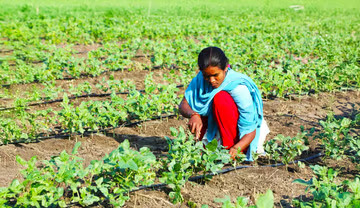AI and Smart Technology Changing Agriculture
PwC predicts that global spending on smart, connected agricultural technologies will triple by 2025, reaching $15.3 billion. IoTAg monitoring is expected to grow to $4.5 billion.
Investment in Agri-Tech in India:
In 2020-21, the Indian government allocated 1403.3 crores, and in 2021-22, 1492.7 crores for new technologies like drones, AI, and GIS in agriculture. Additionally, ICAR received 1300.50 crores and 1414.18 crores in the same years for R&D and farmer training.
AI Changes in Agriculture:
AI applications are transforming agriculture. For example, cognitive computing is increasing productivity.
Microsoft's project with farmers in Andhra Pradesh led to a 30% increase in yields. Technologies like mobile robots, field sensors, and advanced cameras support digital farming practices, providing detailed field analysis and crop monitoring.
Precision Farming and Robotics:
Precision farming integrates data for better crop management using technologies like remote sensing and image recognition for plant and pest identification.
AI-powered robots and smart machinery are addressing labor shortages by performing tasks like harvesting and weeding efficiently, reducing costs and dependency on manual labor.
Improvements in the Supply Chain:
AI enhances agricultural supply chains by improving track-and-traceability, ensuring that fresher crops reach markets and reducing inventory losses.
Challenges and the Future:
AI adoption in agriculture faces challenges such as data requirements and high costs. Making these technologies more affordable and accessible is crucial.
With ongoing efforts and innovations, AI and smart technologies can revolutionize agriculture, improving productivity and farmers' livelihoods globally.




Comments
Post a Comment